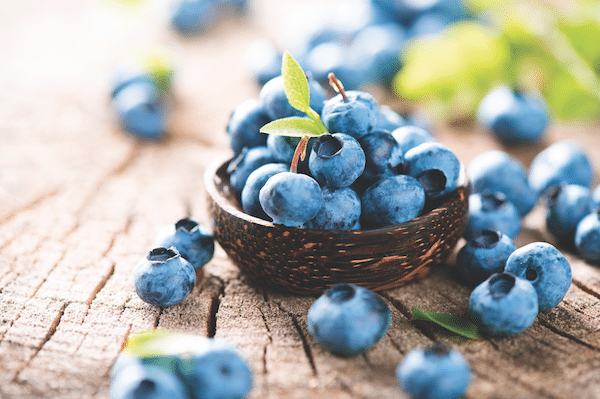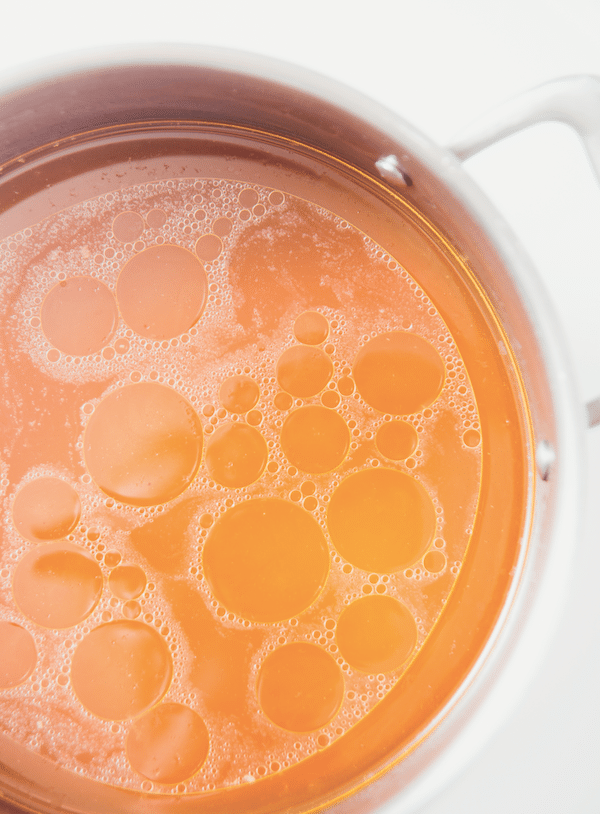Editor’s note: Have you seen the Dogster print magazine in stores? Or in the waiting room of your vet’s office? This article appeared in our December-January issue. Subscribe to Dogster and get the bimonthly magazine delivered to your home.
You read labels, shop smart, and buy the best food you can to help your dog live a long, healthy life. You may even prepare some or all of your dog’s meals yourself. So, do you really need to think about incorporating “extra” ingredients, such as probiotics, herbs, supplements, essential fatty acids, and superfoods, into your dog’s dietary regimen? Yes!
When used properly, these “nutritional boosters,” as I call them, can address specific health concerns or just “turbocharge” the overall nutritional impact of your dog’s diet. To help under- stand the growing popularity of these products and how they can benefit your dog, I turned to holistic veterinarian Doug Knueven, D.V.M., known as “Dr. Doug,” owner of Beaver Animal Clinic in Beaver, Pennsylvania.

Dog by Christian Vieler.
According to Dr. Doug, the popularity of supplements and superfoods did not spring up suddenly, but is the result of a gradual shift regarding companion animal nutrition that has occurred over the last decade.
- He attributes this shift to a variety of factors: The “pharmaceuticalization” of pet supplements, a term he uses to describe the mainstreaming of pet supplements by the pharmaceutical industry. “Now that pharmaceutical companies manufacture and market supplements for pets, more mainstream veterinarians accept them and recommend them to their clients,” Dr. Doug said.
- The increased popularity of holistic medicine for both people and pets.
- The growing importance of companion animals in the family unit. “When people see a benefit from something in their own lives, they want the same for their other family members,” he said.
- The failure of conventional veterinary medicine to prevent and treat rising incidences of chronic disease.
- The internet. “For better or worse, you can find a supplement for just about everything online now,” he said.
Two ways to turbocharge
Dr. Doug said that he views supplements and superfoods in two different ways: filling a general dietary void and addressing a specific health condition.
“Just adding a high-quality fish oil supplement or incorporating some fresh berries into a dog’s diet can help dramatically boost the nutritional quality,” he said. In addition, dogs who suffer from or are susceptible to a health condition can receive a therapeutic benefit from targeted foods and supplements. For example, a high-quality joint supplement can help treat degenerative orthopedic disease, but it’s not necessary to wait until the dog has arthritis to give the supplement because it can help keep the joints healthy throughout life and serve as a preventive.

Blueberries by Shutterstock.
Preventing disease is often the difference between conventional medicine and holistic medicine, according to Dr. Doug. Incorporating superfoods to turbocharge your dog’s diet is a perfect example. “Superfoods are nutritional ingredients that are known to benefit multiple systems of the body in a way that promotes optimum health, and in so doing may help prevent chronic diseases that often accompany aging,” he said.
He pointed to a 2005 study that appeared in the Journal of the American Veterinary Society involving Scottish Terriers, a breed prone to bladder cancer. The researchers found that dogs who ate fresh vegetables three times per week had a 70 to 90 percent reduced risk of developing bladder cancer than those whose diets were not “turbocharged.” “It seems likely that if simply consuming fresh vegetables helps prevent one kind of cancer, it can also help prevent others,” he said.
Too much of a good thing
“I sometimes joke that I’m a ‘holistic’ veterinarian because people come to me with a ‘whole list’ of supplements they give their dog,” Dr. Doug said. However, he said that more is not necessarily better and can even be detrimental. For example, people tend to think that supplements are benign, but that isn’t true. “Herbs are potent and can interact with each other or with conventional medications, while certain vitamins and minerals can impair the absorption of others,” he said.
In his practice, Dr. Doug encourages a “less is more” approach, but there are certain supplements and superfoods he recommends for just about every dog. (See lists below.)

Bone broth by Shutterstock.
Talk about it now
Dr. Doug urges dog parents not to wait until their dog is sick to have a conversation about nutrition with their veterinarian. “The younger we can start a dog on the appropriate supplements and superfoods, the better the chance of avoiding chronic disease down the line,” he said.
Dr. Doug’s Top 5 “Turbocharge” Supplements
- Whole food multivitamin: rounds out nutrition in home-prepared diets (not for dogs consuming “complete and balanced” commercial foods, as this can cause over-supplementation of certain vitamins or minerals)
- Probiotics: promotes a healthy gut and immune system
- Digestive enzymes — aids the absorption of nutrients in senior dogs
- Joint support supplement (containing ingredients such as glucosamine, MSM, and green- lipped mussel extract): helps prevent and treat degenerative orthopedic diseases
- Fish oil: decreases inflammation to help prevent and fight numerous chronic disease, including arthritis, cancer, and heart disease; supports healthy neurological and brain function; helps prevent age-related cognitive decline

Goats by Shutterstock.
Dr. Doug’s Top 5 “Turbocharge” Superfoods
- Coconut oil: benefits skin and coat; supports healthy brain function; helps prevent age-related cognitive decline
- Bone broth: highly absorbable form of nutrients; helps manage gastrointestinal issues; easily accepted by ill dogs
- Blueberries: loaded with antioxidants and phytochemicals; help manage anxiety.
- Vegetables (not onions): contain antioxidants and phytochemicals; help prevent cancer.
- Fermented goat’s milk: packed with probiotics and other easily digestible nutrients, including high-quality protein, fatty acids, vitamins, minerals, and enzymes.
The post Should You Boost Your Dog’s Diet With Supplements and Superfoods? appeared first on Dogster.
No comments:
Post a Comment